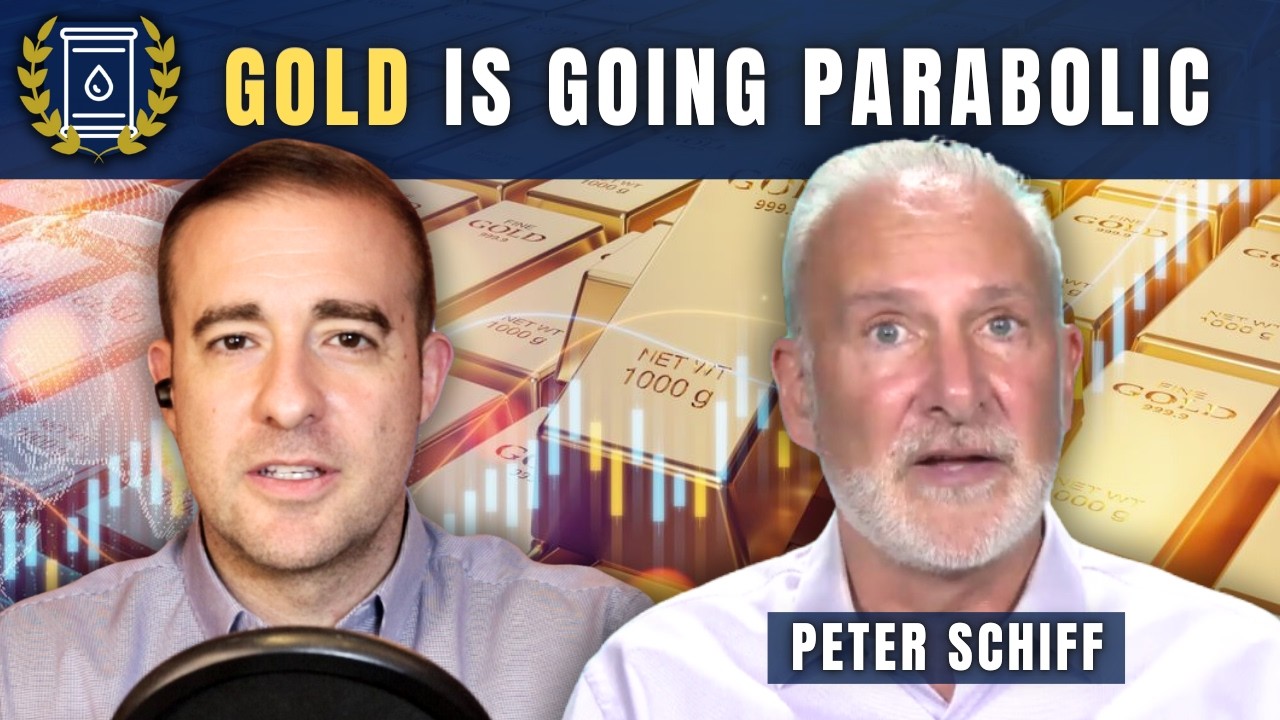Yesterday, Peter Schiff joined host Jesse Day on his show, Commodity Culture, to discuss the expanding global conflict and its implications for the gold market, the state of the economy, and his forecast for inflation. The wide-ranging interview covered several key topics, providing valuable insights for investors in the commodity space.
Global Conflict and Its Impact on Markets
Peter Schiff began by addressing the recent ballistic missile attack on Israel by Iran, describing it as a major escalation in the ongoing conflict. He emphasized the potential negative impacts of expanding hostilities on the global economy:
“Any type of hostilities… is potentially negative for the global economy. Anything that diverts resources away from peaceful enterprises and the production of consumer goods towards warfare and the production of military goods undermines our standard of living.”
Schiff highlighted that wars often lead to:
- Increased inflation
- Loss of individual liberty
- Higher prices
He noted that governments typically finance wars through inflation rather than raising taxes, stating:
“They don’t want to risk losing support for the war by raising taxes to pay for it… they just create money, they go into debt, and the central banks create money, and so we have inflation.”
The Future of Inflation and CPI Calculations
When asked about the Federal Reserve’s inflation target, Schiff expressed skepticism about the government’s ability to achieve a 2% inflation rate without manipulating the Consumer Price Index (CPI) methodology. He suggested that the government might:
1. Further alter CPI calculations to understate actual price increases
2. Raise the inflation target to 3% or 4%
Schiff criticized the arbitrary nature of the 2% inflation target, stating:
“Where’d they get 2% anyway? I mean, they got it from the Reserve Bank in New Zealand that came up with a 2% ceiling, not a target.”
The Upcoming U.S. Presidential Election
Discussing the potential economic impacts of the upcoming presidential election, Schiff compared the policies of Donald Trump and Kamala Harris:
- Trump: Focus on tariffs, which Schiff views as a form of taxation
- Harris: Proposing expanded government spending and social programs
Schiff expressed concern about increasing deficits under either administration but emphasized that the most significant distinction lies in cultural issues and freedom of expression.
Central Bank Digital Currencies (CBDCs)
On the topic of CBDCs, Schiff voiced strong opposition:
“I think a central bank digital currency would be even worse than what we’ve got now because I think the government would have even more control over the money if it were digital.”
He warned that CBDCs could lead to:
- Reduced privacy in financial transactions
- Increased government control over spending
- Potential expiration dates on digital currency
The BRICS Summit and Gold
Schiff discussed the upcoming BRICS Summit in Russia, focusing on the potential announcement of a new currency for trade between member nations. He emphasized the growing movement away from the U.S. dollar:
“The Brick Nations are… building a new monetary system Brick by Brick. It’s going to happen. They’re going to supplant the dollar. It’s only a question of when, not a question of if.”
Gold and Silver Markets
Schiff remains bullish on both gold and silver:
“Once we really get North of 3,000, 4,000 [dollars per ounce for gold]… you’re not going to have all that negativity surrounding the gold bull market. People are going to accept that gold prices are going up.”
On silver, he stated:
“Silver is cheap… There’s nothing guaranteed in life, but to me, this is about as close as you’re going to get. Silver prices are going to go up.”
Gold Mining Sector
Despite recent underperformance, Schiff sees significant value in gold mining stocks:
“I think that these stocks are historically cheap. The sentiment is historically negative. I love being a contrarian.”
He expects consolidation in the industry and believes that major gold mining companies are well-positioned to benefit from rising gold prices.
Federal Reserve Policy and Future Inflation
Schiff predicts that the Federal Reserve will resume quantitative easing (QE) in early 2024:
“I think at some point the Fed is going to go back to QE in order to artificially suppress the longer end of the curve… but that’s just even more inflation, and so it’s coming.”
He warns of potentially severe inflation in the future, driven by ongoing government spending and monetary policy.
Investment Opportunities
In addition to gold and silver, Schiff recommends:
- Emerging markets, particularly Chinese stocks
- Energy and agriculture-related companies
- Defensive stocks (e.g., tobacco, food and beverage, pharmaceuticals)
He advises investors to focus on companies producing goods and services that people need, even in challenging economic times.
In conclusion, Peter Schiff’s interview on Commodity Culture provided a comprehensive overview of his economic outlook and investment recommendations. His contrarian views on inflation, monetary policy, and global markets offer valuable food for thought for investors navigating an increasingly complex economic landscape.




